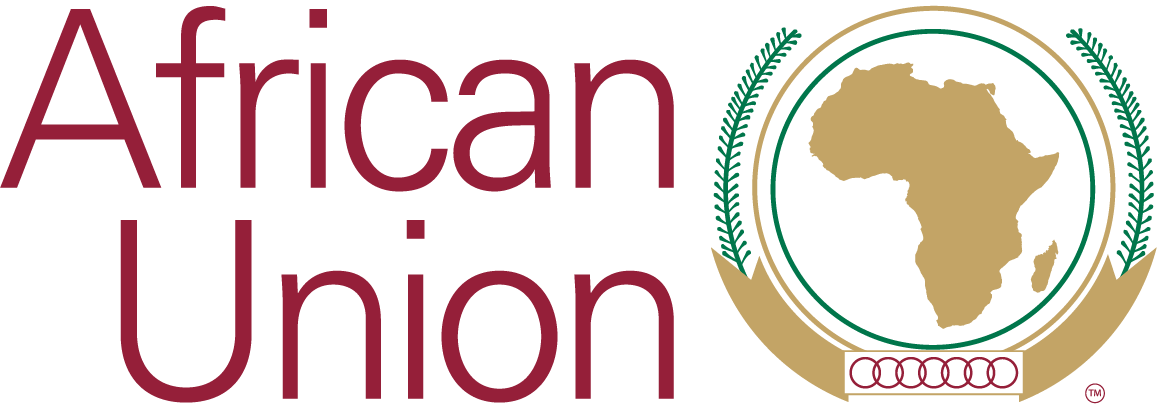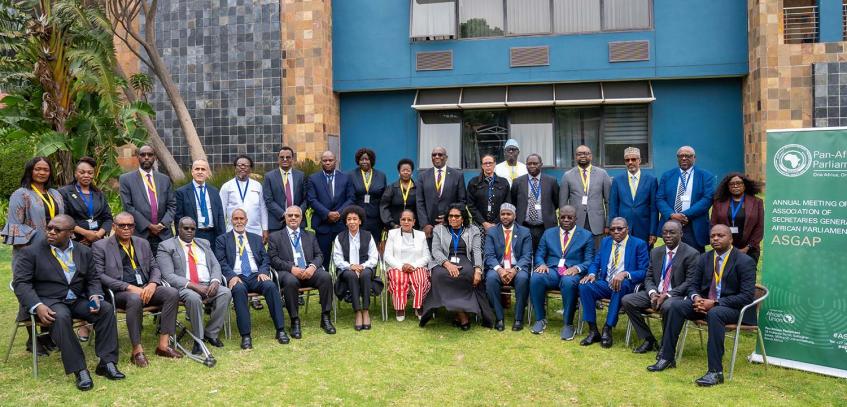The Pan-African Parliament has urged all African nations and legislatures to join the Association of Secretaries-General of African Parliaments (ASGAP), as a strategic move to achieve the ambitious goals of Agenda 2063.
Honourable Lúcia Maria Mendes Gonçalves dos Passos, the Third Vice-President of the Pan-African Parliament, made this appeal during the 5th Annual Meeting of ASGAP held in Midrand, South Africa. The meeting coincided with the ongoing Sitting of the Pan-African Parliament Permanent Committees and other parliamentary organs, organized under the AU's 2024 theme: “Educate an African Fit for the 21st Century: Building Resilient Education Systems for Increased Access to Inclusive, Lifelong, Quality, and Relevant Learning in Africa.”
“Out of 54 African countries, only 35 are members of ASGAP, which concerns us as we advance toward achieving the goals of Agenda 2063,” said Hon. Dos Passos. “ASGAP should reflect a united Africa. No country should be left behind or excluded from this institution. By linking the AU to national parliaments through ASGAP, member states can be strategically positioned to fulfill their mandates. I encourage all countries to join ASGAP so we can collectively achieve our continental goals. We, at the Pan-African Parliament, believe that a fully represented Pan-African Parliament should include all 54 ASGAP member states.”
The Third Vice-President also emphasized that ASGAP must play a crucial role in disseminating Agenda 2063. She highlighted the need for an enhanced understanding among clerks of the AU's strategic priorities and the role of the Pan-African Parliament. This includes a clear articulation of the complementarities and synergies between national, regional, and Pan-African parliaments.
“ASGAP must effectively contribute to capacitating the continent on Agenda 2063. This organization should lead the domestication of AU instruments without excuses. We need you to collaborate with your Foreign Affairs ministers to make Africa a better place for everyone,” she added.
According to Ms. Lindiwe Khumalo, Clerk of the Pan-African Parliament, the 5th Annual Meeting of Clerks of African Parliaments aimed to raise awareness of the AU’s strategic goals and priorities, especially the Agenda 2063 2nd Ten-Year Implementation Plan, and its domestication by regional parliaments. The meeting also sought to strengthen collaboration between the Pan-African Parliament and national and regional parliaments, identify areas of cooperation, and support effective continental results.
Khumalo added that the meeting aimed to promote effective parliamentary action for the ratification and domestication of AU treaties, particularly the Pan-African Parliament Malabo Protocol, and to track the progress of collaborative initiatives to ensure the AU’s and Pan-African Parliament’s objectives are met effectively.
Echoing the Third Vice-President’s sentiments, ASGAP Chairperson and Namibia Secretary General Lydia Tjihimise Kandetu emphasized the need to establish mechanisms and accelerate the ratification, domestication, and implementation of AU instruments at regional and national levels.
“It is our duty to encourage the creation of focal points within parliaments to enhance the visibility of the Pan-African Parliament and foster effective cooperation between African parliaments. We also need to provide legal and technical assistance to the Pan-African Parliament, as well as regional and national parliaments,” she said. “Our agenda includes promoting cooperation in capacity-building initiatives for parliamentary administration at both regional and national levels,” she added, promising to support the effective participation of members of the Pan-African Parliament and other parliaments in achieving their objectives.
In her presentation titled “Agenda 2063 STYIP - Status of Implementation & Alignment of the PAP,” Botho Kebabonye Bayendi, Director of Strategic Planning and Delivery at the African Union Commission, urged ASGAP members to “take Agenda 2063 to its owners - Domesticate and effectively coordinate with structures such as the Pan-African Parliament, National Parliaments, Government Ministers, and AU structures (Assembly Executive Council).”
“We cannot succeed without legislators, the Pan-African Parliament, and National Parliaments,” Bayendi stated. She underscored the importance of working with the Pan-African Parliament to deepen the integration of Agenda 2063 and SDGs into UN Cooperation Frameworks, Development Plans of Regional Economic Communities, and Member States.
Bayendi also called for the urgent acceleration of the domestication of Agenda 2063 STYIP in partnership with a capacitated Pan-African Parliament and supporting its efforts to strengthen the legislative functions of the Parliaments of Regional Economic Communities and Member States. She highlighted the importance of raising awareness of the AU's strategic goals and priorities, particularly Agenda 2063, with a focus on promoting effective parliamentary action towards the ratification and domestication of AU treaties, emphasizing the Pan-African Parliament Malabo Protocol, and enhancing collaboration and synergy among the Pan-African Parliament, national, and regional parliaments.
National parliaments are essential to legislative processes, governance, and oversight within their countries, just as the PAP fulfils these critical roles at the continental level. Despite their shared objectives, a significant disconnect often exists between the activities of national parliaments and the strategic goals of the African Union (AU) and the PAP. This gap limits the ability of national parliaments to effectively incorporate the work of the PAP into their domestic legislative frameworks, thereby diminishing the impact of continental initiatives at the national level.
Additionally, members of national parliaments serving in the PAP need robust support to carry out their duties effectively. Strengthening the relationship between the PAP and national parliaments is crucial to ensuring these members can better represent their countries' interests at the continental level and contribute meaningfully to the PAP’s deliberations.
Conversely, the PAP plays a vital role in amplifying the work and voices of national parliaments on the continental stage. By fostering more substantial synergies and complementarities, the PAP can help elevate national issues to the AU agenda, ensuring that the diverse perspectives of African nations are well represented.
Thus, this conference is essential for bridging the gap between national and continental legislative efforts, supporting national parliament members in their PAP roles, and enhancing the PAP’s ability to integrate and amplify the work of national parliaments across Africa.








